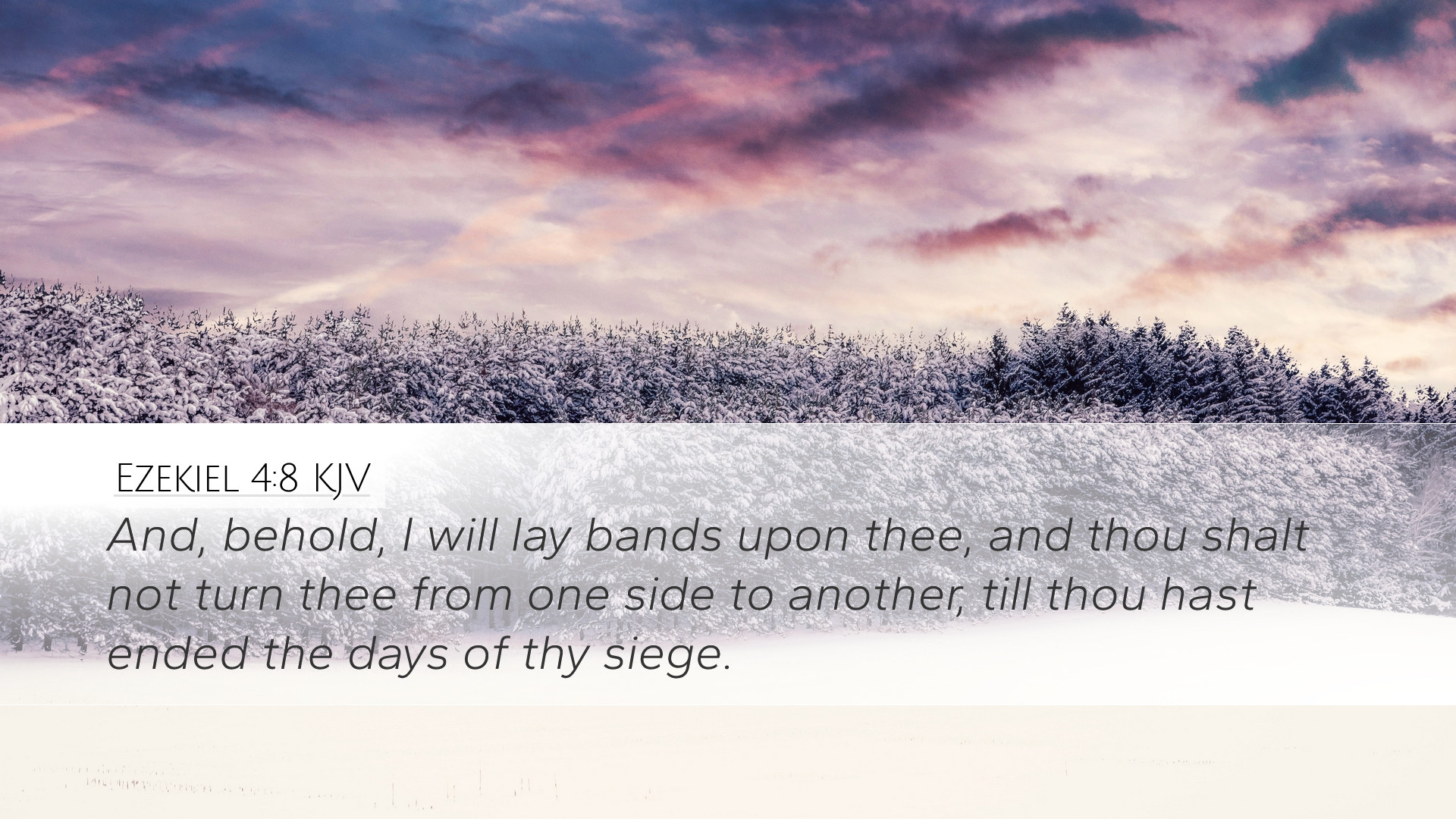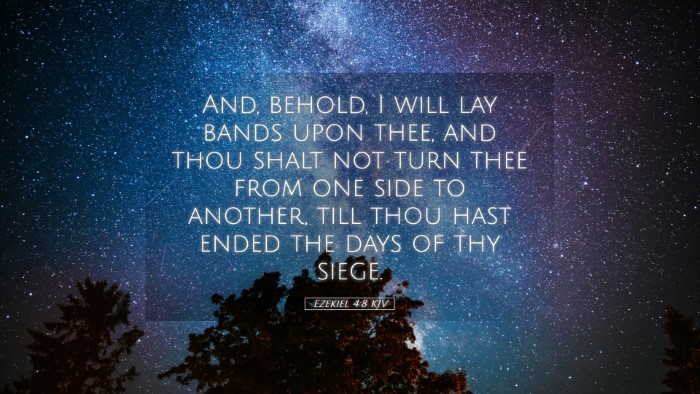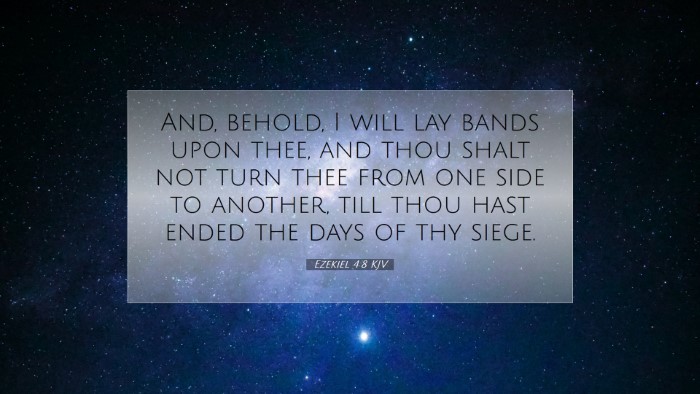Ezekiel 4:8 - Commentary and Insights
Ezekiel 4:8 states, "And, behold, I will lay bands upon thee, and thou shalt not turn thee from one side to another, till thou hast ended the days of thy siege." This verse presents a significant moment in the prophetic ministry of Ezekiel and serves as an important illustration of God's messages through the prophet.
Contextual Overview
To understand Ezekiel 4:8, it is critical to appreciate the historical and contextual background of the book of Ezekiel. Ezekiel, a priest and prophet, was among the exiles taken to Babylon during the siege of Jerusalem. His prophetic work occurred during a time of great turmoil and upheaval for the Israelites. This passage is part of a series of symbolic actions that Ezekiel performed to communicate God's impending judgment upon Jerusalem.
Insights from Matthew Henry
Matthew Henry emphasizes the seriousness of this divine instruction to Ezekiel. He notes that the "bands" placed upon Ezekiel symbolize the severe constraints imposed upon the city of Jerusalem due to its sinfulness. Henry points out that the inability to turn from side to side illustrates the inescapable nature of God's judgment; it is both a demonstration of divine sovereignty and a prophetic symbol of the Israelites' captivity.
Insights from Albert Barnes
Albert Barnes provides a critical analysis of the verse, stating that the "bands" reflect the binding nature of sin and the fate awaiting those who are unrepentant. He further explains that this prophetic action signifies how the Israelites would be besieged and restricted by their enemies. Barnes highlights the certainty of prophecy: the siege and its consequent hardships would not be avoidable, indicating God's unwavering judgment against both Jerusalem and its inhabitants.
Insights from Adam Clarke
Adam Clarke elaborates on the metaphor of siege. He interprets the "bands" as a representation of the chains of affliction that the nation will experience due to their disobedience and rejection of God. Clarke notes that Ezekiel’s physical immobilization serves as a powerful metaphor for the impending spiritual and physical captivity of the nation. He underscores that the prophetic actions of Ezekiel are not merely symbolic, but serve as a vivid and dramatic illustration of the consequences of Israel's idolatry and rebellion.
Theological Implications
The implications of Ezekiel 4:8 extend to various theological themes such as judgment, divine sovereignty, and prophetic witness. Here are several key themes:
- Divine Judgment: The passage underscores the reality of God's judgment against sin. Ezekiel's immobilization reflects how judgment can render a people helpless and unable to escape their circumstances.
- Prophetic Significance: The actions of the prophet serve as a reminder of the prophets' role in delivering God's messages, often in dramatic, symbolic ways that capture attention and evoke reflection.
- Human Response: The call for repentance is implicit in this message; while God's judgment is certain, so too is His willingness to forgive those who turn back to Him.
- Sovereignty of God: The verse affirms the belief that God is in control of the events of history and human affairs, and that His plans will prevail despite human disobedience.
Practical Application
For pastors, students, theologians, and scholars, the study of Ezekiel 4:8 offers several takeaways:
- Understanding Consequences: Reflect on how individual and communal choices impact one’s spiritual life. Just as the Israelites faced dire consequences, so too do modern believers face repercussions for their actions.
- The Role of the Prophet: Consider the importance of prophetic voices today. Evaluate how leaders and teachers communicate God’s truth in a culture that is increasingly resistant to divine judgment and accountability.
- Encouragement to Repent: Use this passage as a call to urge repentance and return to God. Highlight that while God’s judgment is real, His grace and mercy are also abundant for those who seek Him sincerely.
- Mindful of God's Sovereignty: Foster a deep understanding of God's overarching plan in Scripture, which emphasizes His control over the course of history, encouraging faith in His ultimate justice and mercy.
Conclusion
The message of Ezekiel 4:8 is multifaceted, incorporating themes of judgment, constraint, and the necessity for repentance. As detailed through the insights of Matthew Henry, Albert Barnes, and Adam Clarke, it serves not only as a historical narrative but also as a timeless call to reflect on our own responses to God's sovereignty and grace. As such, this verse invites ongoing theological reflection and practical application for all who engage with it.


